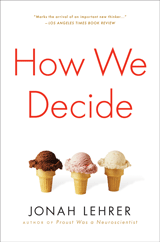The ultimatum game is a simple experiment with profound implications. The game goes like this: one person (the proposer) is given ten dollars and told to share it with another person (the responder). The proposer can divide the money however they like, but if the responder rejects the offer then both players end up with nothing.
When economists first started playing this game in the early 1980s, they assumed that this elementary exchange would always generate the same outcome. The proposer would offer the responder approximately $1⎯a minimal amount⎯and the responder would accept it. After all, $1 is better than nothing, and a rejection leaves both players worse off. Such an outcome would be a clear demonstration of our innate selfishness and rationality.
However, the researchers soon realized that their predictions were all wrong. Instead of swallowing their pride and pocketing a small profit, responders typically rejected any offer they perceived as unfair. Furthermore, proposers anticipated this angry rejection and typically tendered an offer around $5. It was such a stunning result that nobody really believed it.
But when other scientists repeated the experiment the same thing happened. People play this game the same way all over the world, and studies have observed similar patterns of irrationality in Japan, Russia, Germany, France and Indonesia. No matter where the game was played*, people almost always made fair offers. As the economist Robert Frank notes, "Seen through the lens of modern self-interest theory, such behavior is the human equivalent of planets traveling in square orbits."
There are, of course, many possible explanations for the ultimatum game. Perhaps we are programmed to protect our reputation, and don't want other people to think of us as too greedy. Perhaps we anticipate the anger of the other person - they'll be pissed off if they get treated unfairly - and so we make a fair offer out of practical necessity. Or maybe we're all instinctive socialists, hard wired to prefer equitable outcomes.
Interestingly, that last explanation has just gotten some experimental support. (This doesn't mean that the other explanations aren't valid, though. Human behavior rarely has simple causes.) In a paper published last week in Nature, a team of Caltech and Trinity College psychologists and neuroeconomists looked at how the brain's response to various monetary rewards is altered by the context of inequality.
The experiment had a straightforward design. Subjects were slipped into brain scanners and given various cash rewards, such as a gain of $20 or $5. They were also told about rewards given to a stranger. Sometimes, the stranger got more money and sometimes the subject got more. Such is life.
But there was a crucial twist. Before the scanning began, each subject was randomly assigned to one of two conditions: some participants were given "a large monetary endowment" ($50), while the others had to start from scratch.
Here's where the results get interesting: the reaction of the reward circuitry in the brain (especially the ventral striatum and VMPFC) depended on the starting financial position of the subjects. For instance, people who started out with empty pockets (the "poor" condition) got much more excited when given, say, $20 in cash than people who started out with $50. They also showed less interest when money was given to a stranger.
So far, so obvious: if we have nothing, then every little something becomes valuable; the meaning of money is relative. What was much more surprising, however, is that this same contextual effect also held true for people who began in the position of wealth. Subjects who were given $50 to start showed more reward circuit activity when their "poor" partner got cash than when they were given an equivalent amount of cash. As Camerer noted in the Caltech press release: "Their brains liked it when others got money more than they liked it when they themselves got money."
This is pretty weird, if only because it shows that even our neural response to cold, hard cash - the most uncomplicated of gains - is influenced by social context. We think we're so selfish and self-interested, but our ventral striatum has clearly internalized a little Marx.
That said, these results are still open to interpretation. One possibility discussed by the scientists is that the response of the reward areas in "rich" subjects represents a reduction in "discomfort" over having more, for seemingly arbitrary reasons. (Such are the burdens of being blessed.) This suggests that inequality is inherently unpleasant, at least when we know that the inequality is due to random chance.
But what if we believe that the inequality is deserved? Does the aversion still exist when subjects believe they deserve to be "rich"? In the ultimatum game, for instance, people suddenly start behaving selfishly - they keep the vast majority of the money - when they are given a test before the game begins. (They assume the test has determined who is a proposer and who is a responder.) The lesson, then, is that while we are inequality averse, it's a fragile kind of aversion. Even a hint of meritocracy can erase our guilt.
*A reader alerts me to a correction. The Machiguenga of the Peruvian Amazon play quite differently, as demonstrated here.







Comments (22)
"...our ventral striatum has clearly internalized a little Marx."
Would it be more accurate to say that Marx externalized a little of our ventral striatum?
Posted by: NoAstronomer | March 4, 2010 1:06 PM